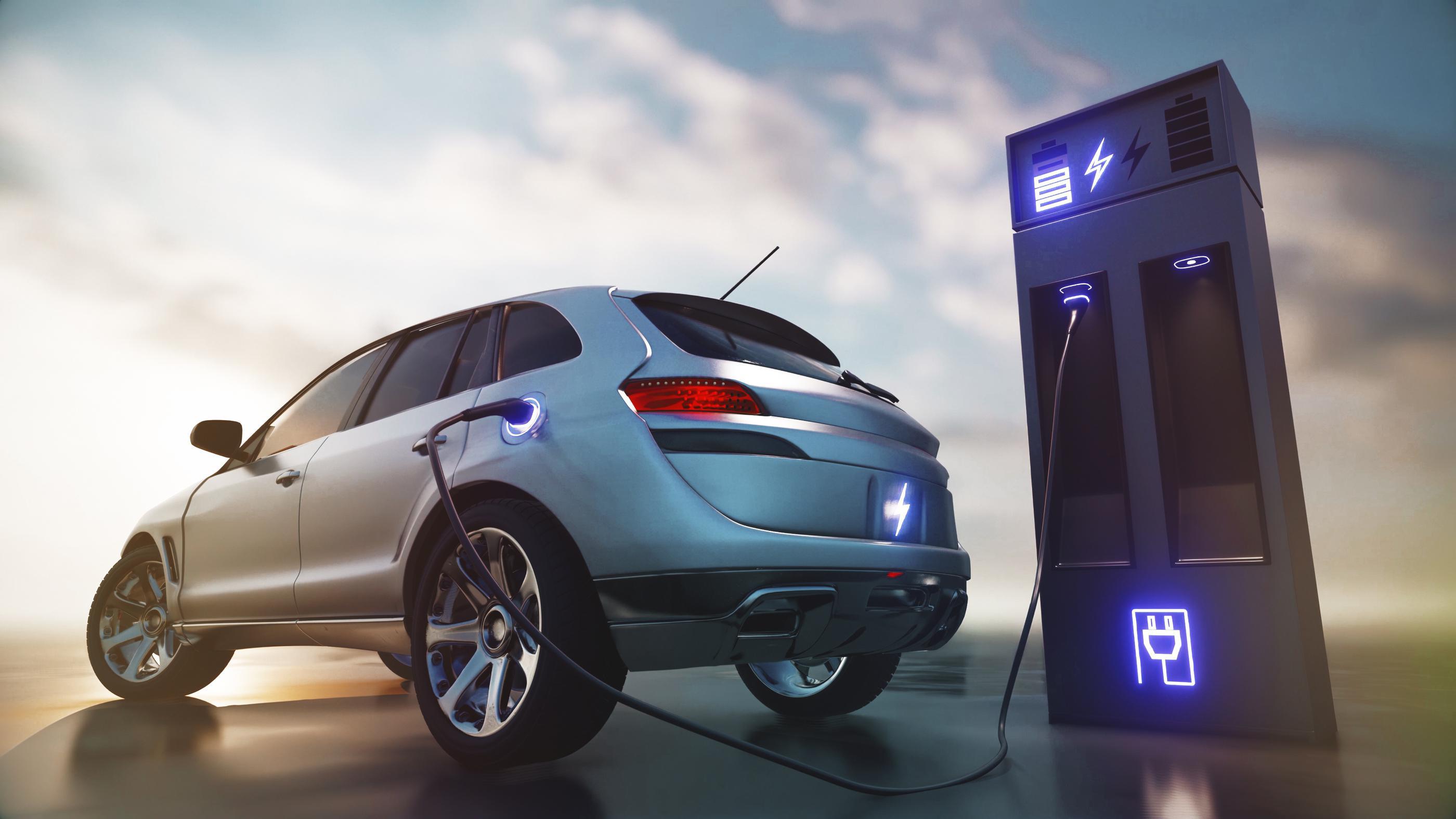How Much Does an Electric Vehicle Raise Your Electric Bill?

Ever find that perfect parking spot only to find that it’s reserved for an electric vehicle? Seeing that illuminated charging station may certainly be a bummer for some folks, but it’s also a testament to the staying power and reach of more eco-friendly transport options.
Electric vehicles (EVs) have become a common sight on highways and roads across the country, marking a significant shift in modern transportation and how we power our cars. Adding a home EV charging station seems like a go-to, next step investment, but a common question arises: How much will an EV impact your electricity bill? Below, our experts explore the costs of charging an electric vehicle at home, factors influencing these expenses, and strategies to manage and reduce your electric bill.
Understanding EV Charging Basics
The Mechanics of EV Charging
How Does EV Charging Work?
Electric vehicle charging involves transferring electrical energy from a power source to the vehicle's battery. This process is similar to charging other electronic devices but on a larger scale. When you plug in your EV, the onboard charger converts the alternating current (AC) from the grid into direct current (DC), which is then stored in the battery.
Home Charging vs. Public Charging Stations
EV owners have two primary options for charging: home charging and public charging stations. Home charging offers convenience and is typically less expensive, allowing you to charge overnight when electricity rates may be lower. Public charging stations, while more expensive, provide flexibility for longer trips and can offer faster charging speeds.
Electricity Rates and EV Charging Costs
The cost of charging an EV varies depending on your local electricity rates. These rates can fluctuate based on the time of day, season, and your utility provider's pricing structure. Understanding these variations is crucial for optimizing your charging routine and minimizing costs.
The Cost of Charging an Electric Vehicle at Home
The (Possible) Average Cost to Charge an Electric Car*
Based on current data, the average cost of charging an electric vehicle at home ranges from $5 to $15 for a full charge. For a more specific example, charging a vehicle with a 65-kilowatt-hour (kWh) battery using a Level 2 charger typically costs around $11, assuming a national average electricity cost of $0.17 per kWh. On a monthly basis, this translates to approximately $56, leading to an annual cost of about $674 if the vehicle is charged solely at home.
*Many factors influence average costs such as region, electricity costs and market fluctuations. This is based on general data available and does not reflect what the actual cost is/will be.
Factors Influencing Electric Car Charging Costs
Battery Size
The size of your EV's battery significantly impacts electricity consumption. Larger batteries require more energy to charge fully but often provide longer driving ranges. For instance, a Tesla Model Y with a larger battery capacity may cost more to charge than a Chevrolet Bolt EV with a smaller battery.
Electricity Rates
Electricity rates vary widely across regions and can significantly affect your charging costs. Some areas offer time-of-use rates, which provide lower costs during off-peak hours, typically at night. Understanding your local electricity pricing structure is crucial for optimizing your charging routine.
Time-Of-Use
Time-of-use rates offer lower prices during off-peak hours, usually late at night or early morning. By scheduling your EV charging during these times, you can substantially reduce your electricity costs. Many modern EVs and charging stations allow you to set charging schedules to take advantage of these lower rates automatically.
Strategic Ways to Manage and Reduce Electric Vehicle Charging Costs
Smart Charging Practices
Benefits of Off-Peak Charging & Time-of-Use Rate Plans
Charging your EV during off-peak hours can lead to significant savings. Many utility companies offer time-of-use rate plans that provide lower rates during specific times, typically overnight. By aligning your charging schedule with these off-peak hours, you can reduce your charging costs by up to 50%. Some EVs even have built-in features that allow you to set charging times to take advantage of these lower rates automatically.
Advantages of Home Charger Installation
Installing a home charger, particularly a Level 2 charger, offers several benefits. While there's an upfront cost, a home charger provides convenience and potentially lower long-term costs. Level 2 chargers can fully charge most EVs overnight, ensuring your vehicle is ready each morning. Additionally, having a dedicated home charger allows you to take full advantage of off-peak rates and avoid the higher costs associated with public charging stations.
Making Home EV Charging Possible with New Load Management Products
Incentives and Rebates to Offset Costs
Federal and State Incentives for EV Owners
Various incentives are available to help offset the costs associated with EV ownership and charging. At the federal level, the Clean Vehicle Tax Credit offers up to $7,500 for new electric vehicles purchased in 2023. Additionally, the Inflation Reduction Act provides a tax credit for installing home EV chargers, equal to 30% of the total installation cost, up to $1,000, specifically for residents in rural or low-income areas.
Many states offer additional incentives. For example, California provides substantial rebates for EV purchases and charger installations, while Colorado offers tax credits that can go up to $10,000. States like New York and New Jersey have EV tax rebate programs, and even states like Texas and Florida provide rebates and incentives for electric vehicle purchases and installations.
It's important to research the specific incentives available in your area, as they can significantly reduce the overall cost of EV ownership and charging. For more detailed information, you can visit the U.S. Department of Energy's Electric Vehicle Charging Infrastructure page.
How Clean Energy Solutions Help Reduce Electricity Costs
Integrating clean energy solutions, such as solar panels, can further reduce your EV charging costs. By generating your own electricity, you can offset the energy used to charge your EV, potentially eliminating charging costs altogether. While the initial investment in solar panels can be significant, the long-term savings on both your home energy bills and EV charging can make it a worthwhile consideration.
EV Charger Installation Near Me
Installing an EV charger at home is a smart investment for electric vehicle owners. A professional installation ensures safety and optimal performance of your charging system. At Mister Sparky, our expert electricians can assess your home's electrical system, recommend the best charger for your needs, and perform a safe, code-compliant installation.
Ready to Install Your Home EV Charger?
Contact Mister Sparky today for a consultation on EV charger installation. Our team of professional electricians is ready to help you make the switch to efficient, cost-effective home charging.
Call us at (800) 906-4577 or find your local Mister Sparky to get started!
Frequently Asked Questions (FAQs)
How long does it take to charge an electric vehicle at home?
The charging time for an electric vehicle at home depends on several factors, including the battery size, the type of charger used, and the vehicle's charging capacity. With a standard Level 1 charger (120V household outlet), you can expect to add about 3-5 miles of range per hour of charging. A Level 2 charger (240V), which is more commonly installed for home use, can add about 25-30 miles of range per hour. This means a full charge for most EVs can be achieved overnight with a Level 2 charger.
Can I charge my electric car with solar panels?
Yes, you can charge your electric car using solar panels. This combination of clean energy technologies can significantly reduce both your carbon footprint and your energy costs. Solar panels can be integrated with your home's electrical system to power your EV charger. During sunny days, your solar panels can generate excess electricity that can be used to charge your EV or fed back into the grid (in areas with net metering). While the initial investment in solar panels can be substantial, the long-term savings on both home energy and EV charging can make it an attractive option for many homeowners.
Go Green with Solar Power and EV Chargers
What type of home charger should I install for my electric vehicle?
For most EV owners, a Level 2 charger is the recommended option for home installation. These chargers operate on a 240V circuit (similar to large appliances like dryers) and can charge an EV much faster than a standard 120V outlet. When selecting a Level 2 charger, consider factors such as:
- Amperage: Higher amperage chargers (40-50 amps) charge faster but may require electrical upgrades.
- Smart features: Some chargers offer Wi-Fi connectivity for remote monitoring and scheduling.
- Cable length: Ensure the cable can reach your vehicle's charging port from the installation location.
- Weather resistance: If installing outdoors, choose a charger rated for outdoor use.
- Compatibility: Ensure the charger is compatible with your specific EV model.
More on the different levels of EV chargers
It's always best to consult with a professional electrician to assess your home's electrical capacity and recommend the most suitable charger for your needs. For more information on EV charger types and installation, you can refer to the Energy Star guide on home charging electric vehicles.
